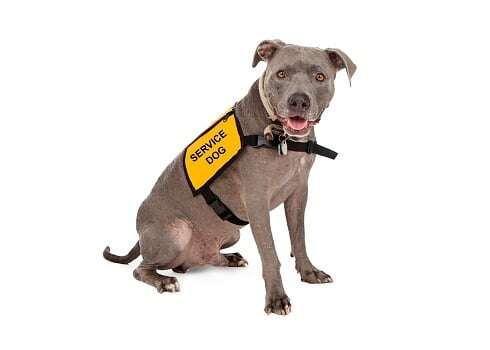 Every investment property owner has a pet policy. Some owners choose to have a strict no-pet policy, others choose to have a pet-friendly policy, while others are somewhere in the middle with a weight limitation or some other limiting factor.
Every investment property owner has a pet policy. Some owners choose to have a strict no-pet policy, others choose to have a pet-friendly policy, while others are somewhere in the middle with a weight limitation or some other limiting factor.
So, say you invest in a beautiful single family home with brand new light colored carpet. Because of certain expensive features of your home you decide to have a strict no-pet policy. In walks a perspective renter and he loves the place and he wants to rent. Everything is great, and then he informs you that he has a “companion animal” that he would like you to meet. He then brings over a 75-pound untrained, hyper-active American Pit Bull that immediately jumps on you and tries to lick you. How do you respond to this?
Well, the answer is, very carefully. Many fair housing experts say that the biggest issue currently affecting fair housing laws is accommodation requests for assistance animals. Therefore let’s take a look at how to handle these requests in rental properties.
Don’t mistake pets and assistance animals
Pets and service animals are completely different. Assistance animals can be called “comfort” animals, “companion” animals, "service" animals or “therapy” animals. They're a protected class of pet and your no-pet policy does not apply to them. You must look at these animals almost like assistants, aids, or even a live-in nurse to help someone with a disability. Just like you wouldn’t discriminate with aids or nurses, you can’t discriminate against these animals. According to HUD (U.S. Department of Housing & Urban Development), these animals provide assistance to disabled people that alleviates one or more symptoms of a disability.
That being said you can still have the resident sign an service animal agreement which prohibits excessive barking, mandates cleaning up after the animal, and ensures the resident have the animal on a leash while in community areas.
Don’t make assumptions
I think all of us would immediately understand the need to rent to someone who is visually impaired and they come in with a professionally trained seeing-eye dog. However, currently under HUD guidelines there are many different animals and many different disabilities that are protected under fair housing laws.
Some disabilities are not obvious, such as anxiety or depression, but assistance animals have been prescribed. Keep in mind that just because you can’t tell from the outside a person has a disability, all disabilities are equally protected under fair housing laws.
No breeds or weight limits are excluded from being protected as service animals; from a teacup Chihuahua, to a massive Great Dane, even the highly controversial “dangerous breeds” including untrained Pit Bulls, Rottweilers and Wolf Hybrids are protected under fair housing laws. There are some “Dangerous Breed” laws that can differ from state, counties, and cities so it’s important you check your local laws because sometimes these laws can conflict with one another.
It would also be wise to proactively reach out to local legal counsel to get even more clarity for your specific area. In addition to all this some insurance policies do not cover incidents – including dangerous breeds – so you’ll also want to consider that. However, the point is, if someone has a legally documented service animal, no matter what it looks or acts like, that animal is protected from your standard no-pet or limited pet policies you currently have in place.
Don’t Charge an Extra Fee
You must also understand that you cannot charge your typical pet deposit or extra “pet rent” for these animals. Again, although they look like a pet, sound like a pet, and act like a pet, they legally aren’t pets. These animals are assistants or aids who perform tasks to help their disabled owners. Therefore, no additional pet deposit or pet fee can be charged to the resident.
The bottom line is when someone says they have a service animal, or they have any documentation stating that they have a “comfort” animal or “companion,” do not take it lightly. If they have all the paperwork you must let them have the animal on your rental property. They’re still liable for all damages caused and you can have an assistance animal agreement, but you’re not allowed to enforce any of the standard no-pet policies.
California fair housing law is a big issue for property managers and should be taken seriously. If you want to be certain you’re correctly following the laws, consider hiring a property management company to help advise you.










